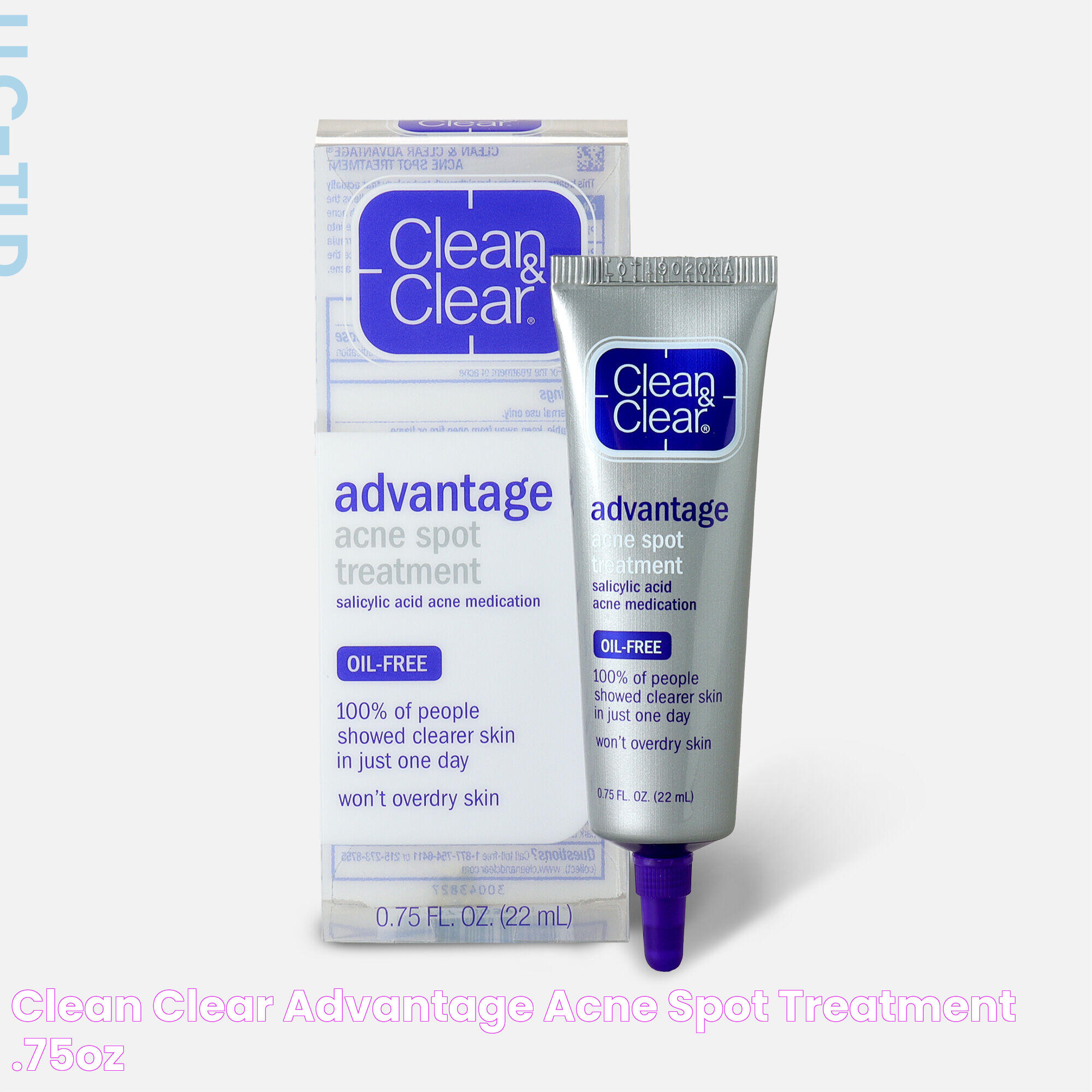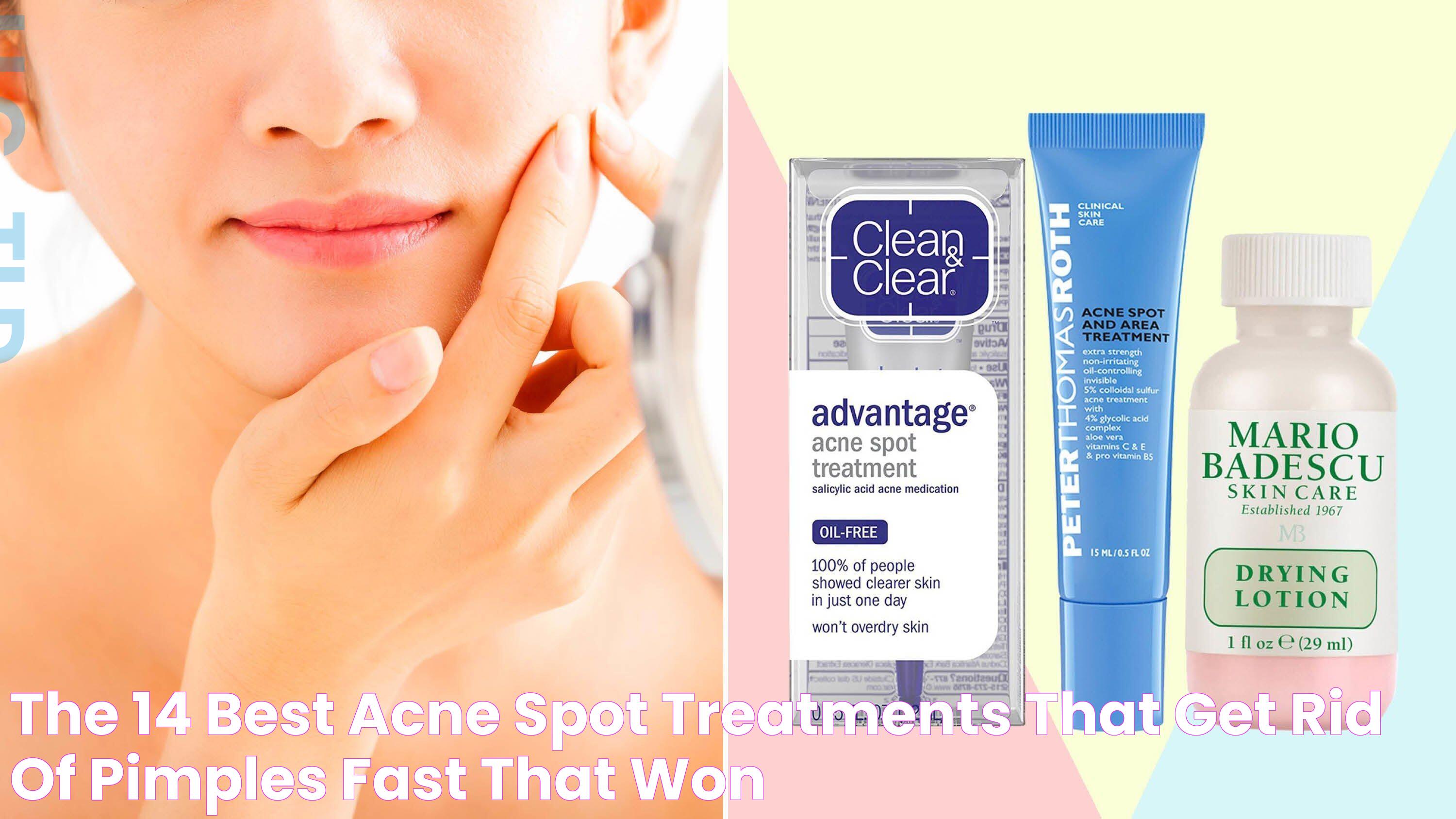Acne spot treatment has become an essential part of many people's skincare routine, offering targeted solutions for those pesky blemishes that seem to appear overnight. Whether you're a teenager dealing with hormonal changes or an adult struggling with persistent acne, finding the right treatment can be a game-changer. With a wide range of products and methods available, the journey to clear skin can sometimes feel overwhelming. This comprehensive guide will delve into the world of acne spot treatments, exploring the best strategies and products that can help you achieve a clearer complexion.
Understanding acne and its causes is crucial before diving into treatment options. Acne is a common skin condition characterized by pimples, blackheads, and cysts, primarily affecting the face, back, and shoulders. It occurs when hair follicles become clogged with oil and dead skin cells, leading to inflammation. Hormonal fluctuations, diet, stress, and genetics can all play a role in the development of acne. Thus, a tailored approach to spot treatment is necessary to address individual needs and skin types.
In this article, we'll break down various acne spot treatments, from over-the-counter solutions to natural remedies and dermatologist-recommended options. You'll gain insights into how these treatments work, their benefits, and potential side effects, allowing you to make informed decisions about your skincare. Say goodbye to the frustration of acne and embrace a path towards healthier, clearer skin with our expert advice.
Read also:Stretch Marks Are They Here To Stay Understanding Their Permanence And Solutions
Table of Contents
- What is Acne and How Does It Develop?
- What Are the Causes of Acne?
- How to Choose Over-the-Counter Treatments?
- Are Natural Remedies Effective for Acne Spot Treatment?
- When to Consider Prescription Options?
- Can Lifestyle Changes Help in Acne Management?
- What is the Connection Between Diet and Acne?
- How to Develop a Skincare Routine for Acne-Prone Skin?
- Common Mistakes in Acne Spot Treatment
- Top Product Recommendations for Acne Spot Treatment
- Expert Dermatologist Advice on Acne Spot Treatment
- Frequently Asked Questions
- Conclusion
What is Acne and How Does It Develop?
Acne is a skin condition that occurs when hair follicles become clogged with oil and dead skin cells. This leads to the formation of pimples, blackheads, and sometimes cysts. Typically affecting the face, back, and shoulders, acne can vary in severity from mild to severe. Understanding how acne develops is crucial in addressing it effectively.
Development Process
The development of acne begins with the overproduction of sebum, an oily substance produced by sebaceous glands. When sebum and dead skin cells block hair follicles, it creates an environment conducive to bacterial growth, leading to inflammation and acne lesions.
Types of Acne
- Whiteheads: Closed clogged pores.
- Blackheads: Open clogged pores that appear dark.
- Papules: Small red, tender bumps.
- Pustules: Pimples containing pus.
- Nodules: Large, painful lumps beneath the surface of the skin.
- Cysts: Painful, pus-filled lumps beneath the skin.
What Are the Causes of Acne?
Acne can be caused by a variety of factors, and understanding these can help in formulating an effective treatment plan.
Hormonal Changes
Hormonal fluctuations, especially during puberty, menstruation, pregnancy, and stress, can increase sebum production, leading to acne.
Diet
Research suggests that certain foods, particularly those high in sugar and dairy, may trigger or worsen acne.
Genetics
If your parents had acne, you're more likely to develop it as well due to inherited skin characteristics.
Read also:Exes And O A Deep Dive Into Its Influence And Impact
Environmental Factors
Exposure to pollution and humidity can contribute to acne flare-ups.
How to Choose Over-the-Counter Treatments?
Over-the-counter (OTC) treatments are a popular choice for managing acne due to their accessibility and variety. Here’s how to choose the right one for you.
Active Ingredients
- Salicylic Acid: Helps exfoliate the skin and clear clogged pores.
- Benzoyl Peroxide: Reduces bacteria and inflammation.
- Retinoids: Encourage cell turnover and prevent clogged pores.
Consider Your Skin Type
It's important to select treatments that suit your skin type, whether it's oily, dry, sensitive, or combination. For instance, oil-free products might be better for oily skin, while hydrating products are ideal for dry or sensitive skin.
Patch Testing
Before fully incorporating a new product into your skincare routine, conduct a patch test to ensure you don't have an adverse reaction.
Are Natural Remedies Effective for Acne Spot Treatment?
Many individuals prefer natural remedies for their perceived gentleness and holistic approach. While not all natural treatments are scientifically proven, some have shown effectiveness in treating acne spots.
Tea Tree Oil
Known for its antibacterial properties, tea tree oil can help reduce acne-causing bacteria and inflammation.
Aloe Vera
Aloe vera has soothing and anti-inflammatory properties, making it a popular choice for calming irritated skin.
Honey and Cinnamon
Both honey and cinnamon have antibacterial properties and can be combined to create a face mask that helps reduce acne.
Limitations of Natural Remedies
While natural remedies can be beneficial, they might not be as potent as conventional treatments and can take longer to show results. It's crucial to manage expectations and consider combining them with other treatments for better outcomes.
When to Consider Prescription Options?
For severe acne cases or when OTC treatments don't work, prescription medications may be necessary. These treatments are stronger and often provide quicker results.
Topical Prescription Medications
- Antibiotics: Reduce bacteria and inflammation.
- Retinoids: Promote cell turnover and prevent clogged pores.
Oral Prescription Medications
- Oral Antibiotics: Treat severe acne by targeting bacteria from within.
- Hormonal Treatments: Such as birth control pills, which regulate hormones.
- Isotretinoin: A powerful drug used for severe acne, known for its effectiveness.
Consulting a Dermatologist
It's advisable to consult with a dermatologist to determine the best prescription treatment for your specific condition, considering potential side effects and individual skin needs.
Can Lifestyle Changes Help in Acne Management?
Implementing certain lifestyle changes can complement acne treatments and contribute to clearer skin.
Stress Management
Stress can exacerbate acne, so incorporating relaxation techniques like yoga, meditation, or deep breathing exercises can be beneficial.
Hygiene
- Regularly wash your face with a gentle cleanser.
- Avoid touching your face to prevent the transfer of bacteria.
- Use clean towels and pillowcases to minimize exposure to dirt and oil.
Exercise
Regular physical activity can improve circulation and reduce stress, both of which can aid in managing acne.
What is the Connection Between Diet and Acne?
Diet plays a significant role in skin health, and certain dietary adjustments might help mitigate acne symptoms.
Foods to Avoid
- High Glycemic Index Foods: Such as white bread, sugary snacks, and soft drinks.
- Dairy Products: Some studies suggest a link between dairy and acne.
Recommended Foods
- Whole Grains: Provide essential nutrients and help stabilize blood sugar levels.
- Fruits and Vegetables: Rich in vitamins and antioxidants that promote healthy skin.
- Omega-3 Fatty Acids: Found in fish and flaxseeds, they have anti-inflammatory properties.
How to Develop a Skincare Routine for Acne-Prone Skin?
Establishing a consistent skincare routine is vital for managing acne-prone skin effectively.
Morning Routine
- Cleanser: Use a gentle, non-comedogenic cleanser to remove impurities.
- Toner: Opt for a toner with salicylic acid to unclog pores.
- Moisturizer: Choose an oil-free moisturizer to hydrate without clogging pores.
- Sunscreen: Protect your skin from UV damage with a broad-spectrum SPF.
Evening Routine
- Cleanser: Double cleanse to remove makeup and impurities.
- Exfoliate: Use a chemical exfoliant 2-3 times a week to prevent clogged pores.
- Treatment: Apply acne spot treatment or topical medication as needed.
- Moisturizer: Hydrate your skin to maintain its barrier function.
Common Mistakes in Acne Spot Treatment
Many people make mistakes when treating acne, which can hinder progress or worsen the condition.
Overusing Products
Using too many products or applying them too frequently can irritate the skin and lead to more breakouts.
Popping Pimples
Popping or squeezing pimples can introduce bacteria and cause scarring.
Skipping Sunscreen
Failing to use sunscreen can result in hyperpigmentation and hinder acne treatment.
Inconsistent Routine
Changing products too often or not adhering to a routine can delay results.
Top Product Recommendations for Acne Spot Treatment
Choosing the right products can make a significant difference in managing acne. Here are some top recommendations:
Clean & Clear Advantage Acne Spot Treatment
This gel formula contains salicylic acid to target breakouts quickly, reducing their size and redness.
Neutrogena On-the-Spot Acne Treatment
With benzoyl peroxide as its active ingredient, this treatment helps to kill acne-causing bacteria without over-drying the skin.
Mario Badescu Drying Lotion
A cult favorite, this lotion contains salicylic acid, sulfur, and zinc to dry out blemishes overnight.
Expert Dermatologist Advice on Acne Spot Treatment
Dermatologists emphasize a personalized approach to acne treatment, considering individual skin needs and concerns.
Consistency is Key
Consistency in treatment and skincare routines is crucial for seeing improvements over time.
Avoid Irritants
Steer clear of products with harsh ingredients that can irritate the skin further.
Seek Professional Help
If over-the-counter treatments are ineffective, consulting a dermatologist can provide access to prescription medications and tailored advice.
Frequently Asked Questions
1. Can I use multiple acne spot treatments at once?
It's generally not recommended to use multiple treatments simultaneously, as this can lead to irritation. Start with one product and monitor your skin's response.
2. How long does it take for acne spot treatments to work?
Results can vary, but most treatments take a few weeks to show noticeable improvements. Consistency is key.
3. Can diet alone clear up acne?
While diet can influence skin health, it's typically not enough by itself to clear acne. It should be part of a comprehensive treatment plan.
4. Is it necessary to see a dermatologist for mild acne?
For mild acne, over-the-counter treatments may suffice. However, if there's no improvement, consulting a dermatologist can provide additional options.
5. Are natural remedies safe for sensitive skin?
Some natural remedies are gentle enough for sensitive skin, but it's important to patch-test new treatments and consult with a dermatologist if unsure.
6. Can acne spot treatments be used on other parts of the body?
Yes, many spot treatments can be applied to the back, shoulders, and chest, but always follow the product's instructions for use.
Conclusion
Acne spot treatment is a crucial component of skincare for those dealing with acne. By understanding the causes, exploring various treatment options, and implementing lifestyle changes, individuals can effectively manage their acne and work towards healthier skin. Consistency, patience, and the right products are essential in this journey. Remember, if over-the-counter solutions don't yield desired results, professional guidance from a dermatologist can offer more targeted and effective treatments. Embrace the path to clearer skin with confidence and informed choices.

